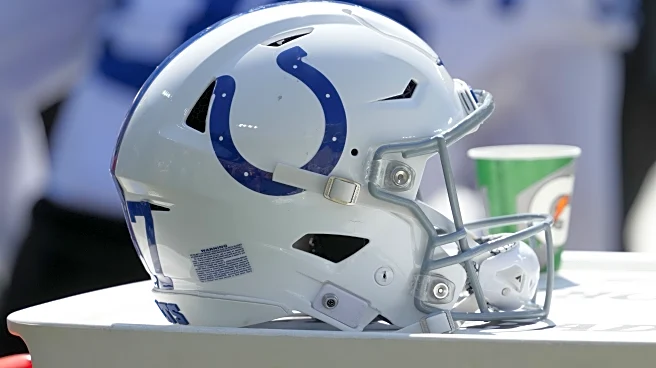What's Happening?
Penn State's head coaching position is a significant vacancy in college football, attracting attention from various sports analysts. ESPN's College GameDay hosts, including Kirk Herbstreit and Pat McAfee,
have speculated on potential candidates to replace James Franklin. Matt Rhule, currently at Nebraska and a Penn State alumnus, is considered a strong candidate despite his commitment to Nebraska. Other names mentioned include Matt Campbell from Iowa State and Manny Diaz from Duke, both seen as culturally and operationally fitting for Penn State. The discussion also touched on high-profile names like Nick Saban, though his wife has dismissed the possibility of him taking the job.
Why It's Important?
The selection of a new head coach for Penn State is crucial, given the program's reputation and resources. The decision will impact the team's performance and recruitment strategies, influencing college football dynamics. A successful hire could elevate Penn State's status in the NCAA, attracting top talent and enhancing its competitive edge. The speculation around high-profile coaches like Nick Saban highlights the program's ambition and the potential financial implications of such a hire. The choice will also reflect Penn State's strategic direction and commitment to maintaining its legacy in college sports.
What's Next?
As the search for a new head coach continues, Penn State will likely evaluate candidates based on their track record, cultural fit, and ability to lead the team to success. The decision-making process will involve assessing the potential impact on recruitment and team performance. Stakeholders, including alumni and fans, will be keenly watching for announcements, which could influence ticket sales and sponsorship deals. The new coach's appointment will set the tone for the upcoming season, with expectations for immediate results given the program's stature.
Beyond the Headlines
The coaching vacancy at Penn State underscores the competitive nature of college football, where programs vie for top talent to enhance their standing. The discussions around potential candidates reflect broader trends in sports management, where cultural fit and operational knowledge are increasingly valued alongside performance metrics. The speculation around high-profile coaches also highlights the financial aspects of college sports, where lucrative contracts and sponsorships play a significant role in decision-making. This situation illustrates the complex interplay between sports, business, and education in shaping college athletics.











